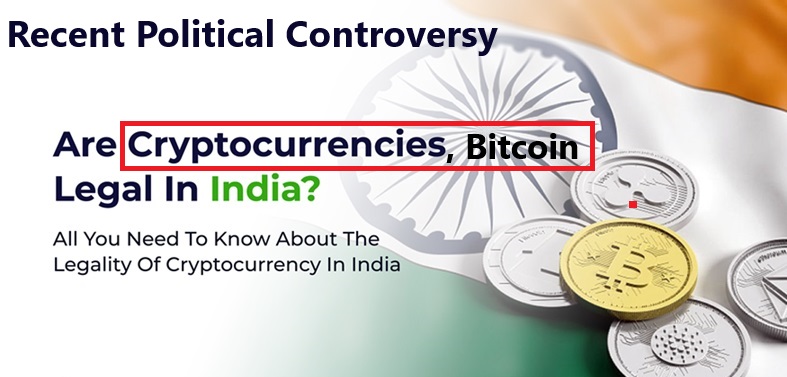Cryptocurrency
What is crypto currency?
A digital or virtual money that is protected by cryptography is called crypto currency. It is very difficult to re-spend or duplicate. Blockchain technology allows crypto currencies to exist on a distributed computer network.
In Short
- What is crypto currency?
- What is Bitcoin?
- What is recent political controversy
- RBI’s proposal on virtual currency?
- Government’s stand towards bitcoin or crypto currency?
- How is the government now regulating crypto currency?
Also Read: Top 10 New Technology Trends in 2024: Discover the latest technology advancements
What is Bitcoin?

The most well-known crypto currency, developed with blockchain technology is called Bitcoin.
Unlike gold, it has no inherent value and cannot be exchanged for any other good. Additionally, it only exists on computer networks without a physical existence.
No central bank controls its supply; instead an autonomous protocol does.
Cryptocurrency
What is recent political controversy?
Bitcoin and crypto currency are in the news as NCP’s Supriya Sule and Congress’s Nana Patole, the president of Maharashtra have been accused of engaging in illegal bitcoin activities during the Indian election campaigns.
Is there bitcoin and crypto currencies legal in India?

India is trying to control crypto currencies, additionally in 2022, the government planned to impose a 30 percent tax on bitcoin revenues.
Nevertheless, until a system is put into place, crypto currency is not entirely legal. According to Finance Minister Nirmala Sitharaman, only digital currency issued by the Reserve Bank of India (RBI) would be accepted as legal, while the RBI sees private crypto currency investments as a danger to macroeconomic stability. In India, crypto currency regulation is still being figured out.
RBI’s proposal on virtual currency ?
Due to concerns about the stability of the economy, the RBI’s proposal to ban crypto currencies was denied by a court decision.
Governor Das issued a warning about the loss of control over the money supply. The RBI suggests banning crypto currency assets, but successful regulation requires international collaboration.
Since crypto currency assets traverse national boundaries, successful regulation or prohibition depends on a common classification and set of rules.
Government’s stand towards bitcoin or crypto currency?

While private digital, virtual, and crypto currencies have gained a lot of popularity in the last ten years.
Governments and authorities are worried about the dangers involved. On 4th-Mar-2021 the Supreme Court reversed the RBI’s 2018 circular that banned services related to virtual currency.
Currently, crypto currencies are unregulated in India but are subject to anti-money laundering laws, income tax, TDS, and GST on exchanges.
In July of last year, Finance Minister Nirmala Sitharaman stated that international collaboration could be required for the effective regulation or regulation of crypto currencies.
How is the government now regulating crypto currency?
The RBI, SEBI, and Finance Ministry are among the members of an interministerial group (IMG) that is creating an Indian crypto currency policy.
Before a decision is taken, stakeholder feedback is requested.

Discover more from Newz Ticks
Subscribe to get the latest posts sent to your email.






One thought on “Cryptocurrency: Political controversy around Bitcoin, What is government and RBI stand? Is it prohibited in India?”
Comments are closed.